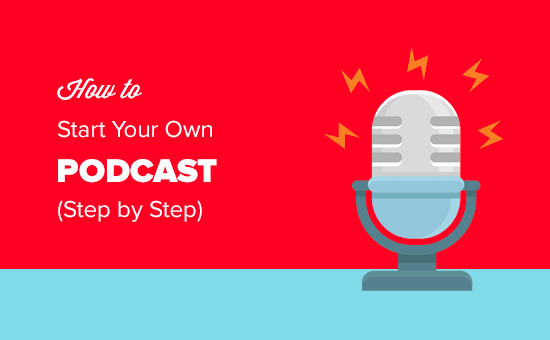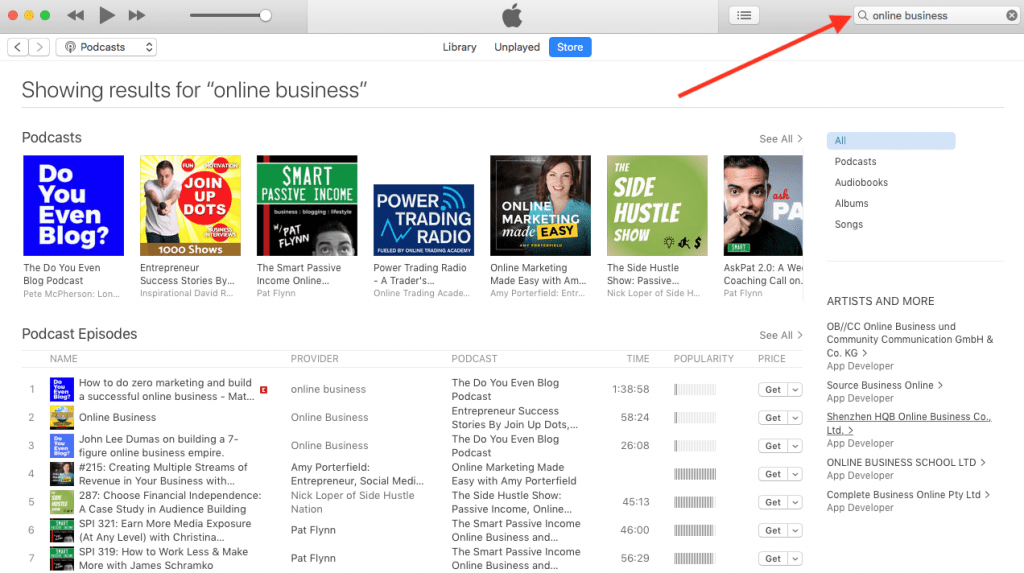
There’s no doubt about it: podcasts are on the rise. These days, you can find a podcasts across nearly every industry and niche. No matter what your interests are, there’s a podcast that will capture your attention. Washingtonian Magazine called 2015 the “year of the podcast.” And the following year, podcast engagement had increased by 23%. As you can see, this is an important time to leverage a trend to your benefit. Here’s what you need to know about creating a podcast for your business:
Benefits of Creating a Podcast

How to Start a Podcast in 2019: Pat’s Complete Step-By-Step Podcasting Tutorial – UPDATED!
There’s something quite special about starting a podcast, and there are plenty of benefits to making a podcast your priority. In addition to the fact that podcasts have strong growth, it’s easier for some people to produce audio content than blog posts. If you’re a natural speaker and conversationalist, this is ideal for you. It also allows you to build a personal brand in a much more authentic way.
While the tone of a blog is important, it takes time and several blog posts for a reader to be captivated by written content, compared to podcasts, where listeners are able to connect with a voice, personality, and energy within seconds. This is where your personality can shine and you can truly add a humane element and voice to your business. It also opens up the opportunity to be a thought leader in your space. As your listener base grows, you’ll find that speaking engagements and guest show opportunities also grow.
Create a Revenue Stream
While not impossible, monetizing a standalone blog is difficult. With the right marketing and showmanship, you can create a revenue stream from your podcast quicker than you might think. First and foremost, you can increase sales of your current products or services once you’ve increased brand awareness (be sure to not be too salesy during your podcasts—instead, offer discounts and deals when relevant).
You can also earn income from advertisements and sponsorships. You may have noticed those paid commercial spots and sponsorship interruptions when you’re listening to popular podcasts—those same options are there for you once your podcast starts to gain traction.
You’ll Need a Complementary Blog

How to Start Your Own Podcast (Step by Step)
Just because you have a podcast doesn’t mean you don’t need a blog. Every business should launch a blog to appeal to search engines and users who prefer to read content or can’t listen to the podcast in certain situations. The great thing about having a podcast is that you’ve already got a chunk of material for your blog—all you’ll need to do is transcribe it. And speaking of revenue stream, you’ll also be able to add affiliate links to your blog content to generate additional dollars.
What to Know About Equipment & Space Together
Many people think a podcasting setup looks similar to a radio broadcasting setup, but this couldn’t be further from the truth. One of the best things about starting a podcast is that overhead costs are very low. You don’t need a dedicated office—you can set up a small studio in the corner of your living room or reserve an office in a coworking space.
How to Start a Podcast (2019 Tutorial) 
When it comes to equipment, you’ll need a computer, a microphone, and podcast software. You can download paid or free podcasting software (applications like Garageband already come with this in it). A simple microphone will set you back just $30, while the more professional options are up to $150. As you can see, there are plenty of options within your budget. Editing your podcast is an important part of the process, too: if you don’t have the time to teach yourself, you can hire an audio editor on a freelancer platform like UpWork for a low cost.
Marketing Your Podcast
Just because you’ve started a podcast doesn’t mean listeners will find it. You have to market your podcast just as you would with your business and blog. And one of the best ways to do this is to—surprise—start working on getting featured on other blogs. Start by making a list of all the most relevant podcasts in your industry.
Don’t be afraid to think outside the box here. For example, if you run a coffee shop, you don’t have to focus on podcasts centered around the coffee bean and production; you can also reach out to podcasts that highlight startups or offer advice on how to start brick and mortar companies. Once you’ve come up with a list you’re happy about, start reaching out to each with a tailored pitch.




